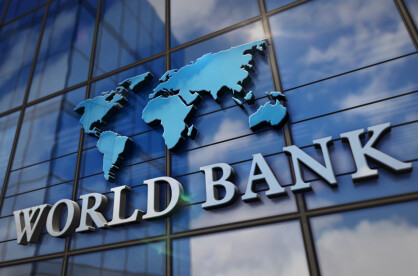Latest world economic growth outlook by IMF
The global economy is forecast to slow from 6 percent in 2021 to 3.2 percent by the end of 2022.

Source: Dawn/AFP
The global economy is forecast to slow from 6 percent in 2021 to 3.2 percent by the end of 2022.

Source: Dawn/AFP
The International Monetary Fund (IMF) has released this month, the latest global growth forecast for 2023 and revisions for 2022. According to the World Economic Outlook report published by IMF, the global economy is forecast to slow from 6.0 percent in 2021 to 3.2 percent by the end of 2022, and to 2.7 percent in 2023.
Growth of advanced economies is projected to be at 2.4 in 2022 and 1.1 percent in 2023, with Germany and Italy having negative growth projections for 2023. Growth projection for Euro area is at 0.5 percent in 2023 from 3.1 percent in 2022.
Under the emerging and developing Asia, China is expected to achieve 4.4 percent growth, while India’s growth is projected at 6.1 percent in 2023, while the average growth for ASEAN-5 is forecasted at 4.9 percent.

Russia’s economy will shrink this year by 3.4 percent, followed by negative 2.3 percent again in 2023. Saudi Arabia’s economy is expected to grow by 7.6 percent in 2022, however growth for 2023 is estimated to be at 3.7 percent.
As per the IMF report, the world economy is experiencing many turbulent challenges; with higher inflation, tight financial conditions, Russia’s invasion of Ukraine, and the prolonged COVID-19 impact on the economies.
Global inflation is forecast to rise from 4.7 percent in 2021 to an alarming 8.8 percent in 2022, but to decline to 6.5 percent in 2023. Higher inflation pressures are most evident in advanced economies. IMF predicts that more energy and food price shocks might cause inflation to persist for longer.
Other major risks highlighted by the report include; the global tightening in financing conditions that may trigger widespread emerging market debt distress. Halting gas supplies by Russia could have a severe negative impact on the output of Europe.
The worsening of China’s property market crisis could have a spill-over effect on the domestic banking sector, and have negative effects on the growth of the economy, and risk of negative cross-border effects.



